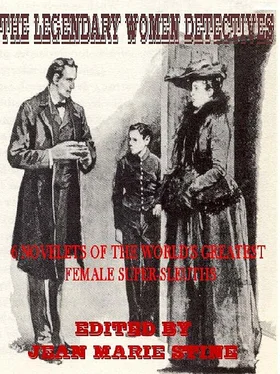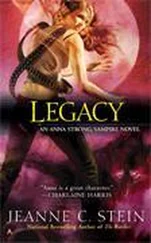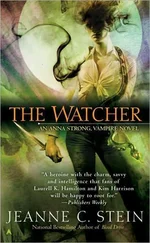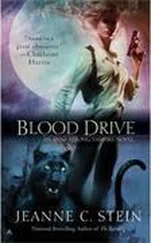Loveday’s second day in Mr. Craven’s study promised to be as unfruitful as the first. For fully an hour after she had received Griffiths’ note, she sat at the writing-table with her pen in her hand, ready to transcribe Mr. Craven’s inspirations. Beyond, however, the phrase, muttered with closed eyes – “It’s all here, in my brain, but I can’t put it into words” – not a half-syllable escaped his lips.
At the end of that hour the sound of footsteps on the outside gravel made her turn her head towards the windows. It was Griffiths approaching with two constables. She heard the hall door opened to admit them, but, beyond that, not a sound reached her ear, and she realized how fully she was cut off from communication with the rest of the household at the farther end of this unoccupied wing.
Mr. Craven, still reclining in his semi-trance, evidently had not the faintest suspicion that so important an event as the arrest of his only son on a charge of murder was about to be enacted in the house.
Meantime, Griffiths and his constables had mounted the stairs leading to the north wing, and were being guided through the corridors to the sick-room by the flying figure of Moggie, the maid.
“Hoot, mistress!” cried the girl, “here are three men coming up the stairs – policemen, every one of them – will ye come and ask them what they be wanting?”
Outside the door of the sick-room stood Mrs. Craven – a tall, sharp-featured woman with sandy hair going rapidly grey.
“What is the meaning of this? What is your business here?” she said haughtily, addressing Griffiths, who headed the party.
Griffiths respectfully explained what his business was, and requested her to stand on one side that he might enter her son’s room.
“This is my daughter’s room; satisfy yourself of the fact,” said the lady, throwing back the door as she spoke.
And Griffiths and his confreres entered, to find pretty Miss Craven, looking very white and scared, seated beside a fire in a long flowing robe de chambre.
Griffiths departed in haste and confusion, without the chance of a professional talk with Loveday. That afternoon saw him telegraphing wildly in all directions, and dispatching messengers in all quarters. Finally he spent over an hour drawing up an elaborate report to his chief at Newcastle, assuring him of the identity of one Harold Cousins, who had sailed in the Bonnie Dundee for Natal, with Harry Craven, of Troyte’s Hill, and advising that the police authorities in that far-away district should be immediately communicated with.
The ink had not dried on the pen with which this report was written before a note, in Loveday’s writing, was put into his hand.
Loveday evidently had had some difficulty in finding a messenger for this note, for it was brought by a gardener’s boy, who informed Griffiths that the lady had said he would receive a gold sovereign if he delivered the letter all right.
Griffiths paid the boy and dismissed him, and then proceeded to read Loveday’s communication.
It was written hurriedly in pencil, and ran as follows:
Things are getting critical here. Directly you receive this, come up to the house with two of your men, and post yourselves anywhere in the grounds where you can see and not be seen. There will be no difficulty in this, for it will be dark by the time you are able to get there. I am not sure whether I shall want your aid tonight, but you had better keep in the grounds until morning, in case of need; and above all, never once lose sight of the study window. [This was underscored.] If I put a lamp with a green shade in one of those windows, do not lose a moment in entering by that window, which I will contrive to keep unlocked.
Detective Griffiths rubbed his forehead – rubbed his eyes, as he finished reading this.
“Well, I daresay it’s all right,” he said, “but I’m bothered, that’s all, and for the life of me I can’t see one step of the way she is going.”
He looked at his watch; the hands pointed to a quarter past six. The short September day was drawing rapidly to a close. A good five miles lay between him and Troyte’s Hill – there was evidently not a moment to lose.
At the very moment that Griffiths, with his two constables, was once more starting along the Grenfell High Road behind the best horse they could procure, Mr. Craven was rousing himself from his long slumber, and beginning to look around him. That slumber, however, though long, had not been a peaceful one, and it was sundry of the old gentleman’s muttered exclamations, as he had started uneasily in his sleep, that had caused Loveday to pen, and then to creep out of the room to dispatch her hurried note.
What effect the occurrence of the morning had had upon the household generally, Loveday, in her isolated corner of the house, had no means of ascertaining. She only noted that when Hales brought in her tea, as he did precisely at five o’clock, he wore a particularly ill-tempered expression of countenance, and she heard him mutter, as he set down the tea-tray with a clatter, something about being a respectable man, and not used to such “goings on.”
It was not until nearly an hour and a half after this that Mr. Craven had awakened with a sudden start, and, looking wildly around him, had questioned Loveday who had entered the room.
Loveday explained that the butler had brought in lunch at one, and tea at five, but that since then no one had come in.
“Now that’s false,” said Mr. Craven, in a sharp, unnatural sort of voice; “I saw him sneaking round the room, the whining, canting hypocrite, and you must have seen him, too! Didn’t you hear him say, in his squeaky old voice: ”Master, I knows your secret–‘?“ He broke off abruptly, looking wildly round. ”Eh, what’s this?“ he cried. ”No, no, I’m all wrong – Sandy is dead and buried – they held an inquest on him, and we all praised him up as if he were a saint.“
“He must have been a bad man, that old Sandy,” said Loveday sympathetically.
“You’re right! you’re right!” cried Mr. Craven, springing up excitedly from his chair and seizing her by the hand. “If ever a man deserved his death, he did. For thirty years he held that rod over my head, and then – ah, where was I?”
He put his hand to his head and again sank, as if exhausted, into his chair.
“I suppose it was some early indiscretion of yours at college that he knew of?” said Loveday, eager to get at as much of the truth as possible while the mood for confidence held sway in the feeble brain.
“That was it! I was fool enough to marry a disreputable girl – a barmaid in the town – and Sandy was present at the wedding, and then–” Here his eyes closed again and his mutterings became incoherent.
For ten minutes he lay back in his chair, muttering thus; “A yelp – a groan,” were the only words Loveday could distinguish among those mutterings, then, suddenly, slowly and distinctly, he said, as if answering some plainly-put question: “A good blow with the hammer and the thing was done.”
“I should like amazingly to see that hammer,” said Loveday; “do you keep it anywhere at hand?”
His eyes opened with a wild, cunning look in them.
“Who’s talking about a hammer? I did not say I had one. If anyone says I did it with a hammer, they’re telling a lie.”
“Oh, you’ve spoken to me about the hammer two or three times,” said Loveday calmly; “the one that killed your dog, Captain, and I should like to see it, that’s all.”
The look of cunning died out of the old man’s eye – “Ah, poor Captain! splendid dog that! Well, now, where were we? Where did we leave off? Ah, I remember, it was the elemental sounds of speech that bothered me so that night. Were you here then? Ah, no! I remember. I had been trying all day to assimilate a dog’s yelp of pain to a human groan, and I couldn’t do it. The idea haunted me – followed me about wherever I went. If they were both elemental sounds, they must have something in common, but the link between them I could not find; then it occurred to me, would a well-bred, well-trained dog like my Captain in the stables, there, at the moment of death give an unmitigated currish yelp; would there not be something of a human note in his death-cry? The thing was worth putting to the test. If I could hand down in my treatise a fragment of fact on the matter, it would be worth a dozen dogs’ lives. So I went out into the moonlight – ah, but you know all about it – now, don’t you?”
Читать дальше












